
By Debra Prinzing
Thanks to receiving a coveted press credential badge, I spent three days at the Royal Horticultural Society (RHS) Chelsea Flower Show (May 21-25). The legendary event is considered the official kick-off to gardening season in Great Britain, and it was a thrill to be part of the floral festivities.
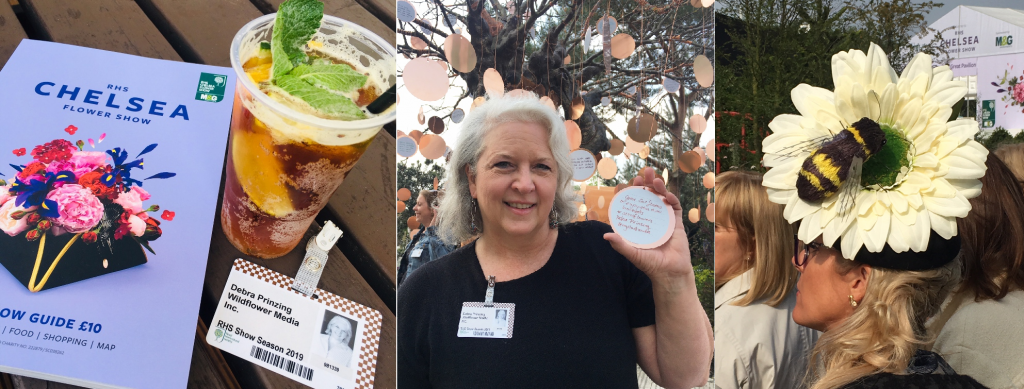
Much of the Chelsea Flower Show takes place outdoors, on the grounds of the Royal Hospital Chelsea. With camera around my neck and guidebook in my hands, I toured grand, small-scale and artisan garden displays and later spent hours inside the Great Pavilion studying the floral and horticulture exhibits.
Arguably the best flower and garden show on the planet, the floral extravaganza attracts the who’s who of horticulture. Landscape architects, garden designers, plant breeders, Her Majesty Queen Elizabeth II — they all show up. I didn’t have a royal sighting this visit (I spotted Prince Harry in 2015), but I did catch glimpses of several film stars and BBC celebrities among the blooms.
As for the real stars of the show — the flowers — here are the best design ideas, plant combinations and palettes that wowed me:
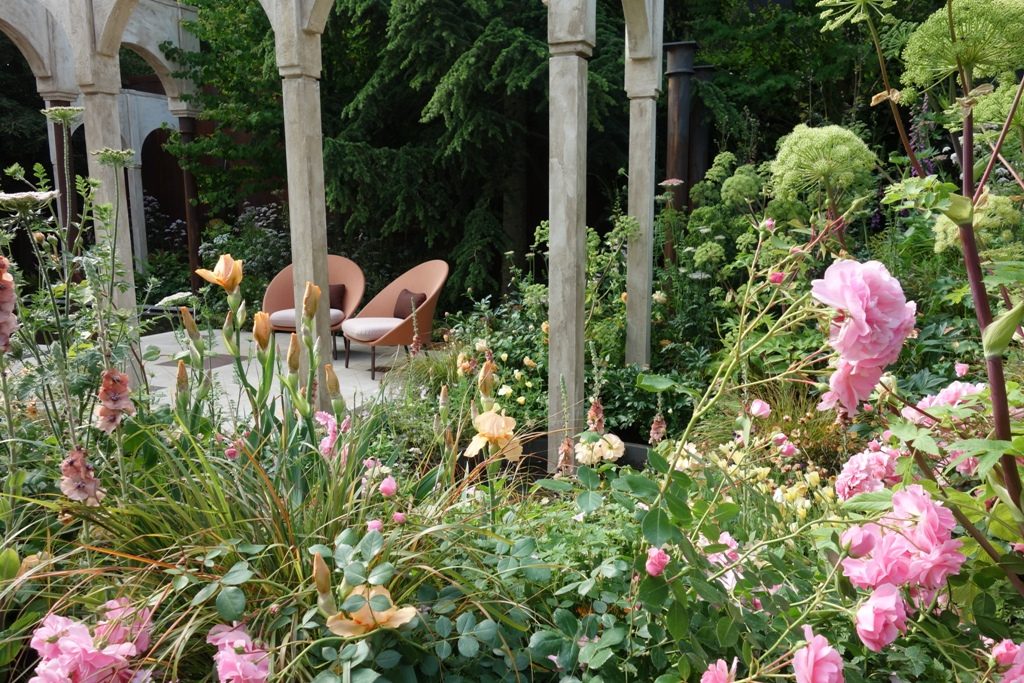
Floral Palette
The Wedgewood Garden, by multi award-winning U.K. designer Jo Thompson, depicted an alluring, Impressionistic wash of watercolors with botanicals in soft lemons, creams and peached accented with fresh green and lime foliage and rich, deep claret petals.
Apricot and pink bearded irises, blush and rouge garden roses, pale yellow California poppies and spires of coral verbascum intermingled as a joyous, tapestry-like border. One of the show’s standout plants, Angelica archangelica, lent dramatic, architectural structure and height as it stood among foxglove spires. To me, this was the show’s most exciting floral combination that easily translates from a cottage garden border to a bridal bouquet.
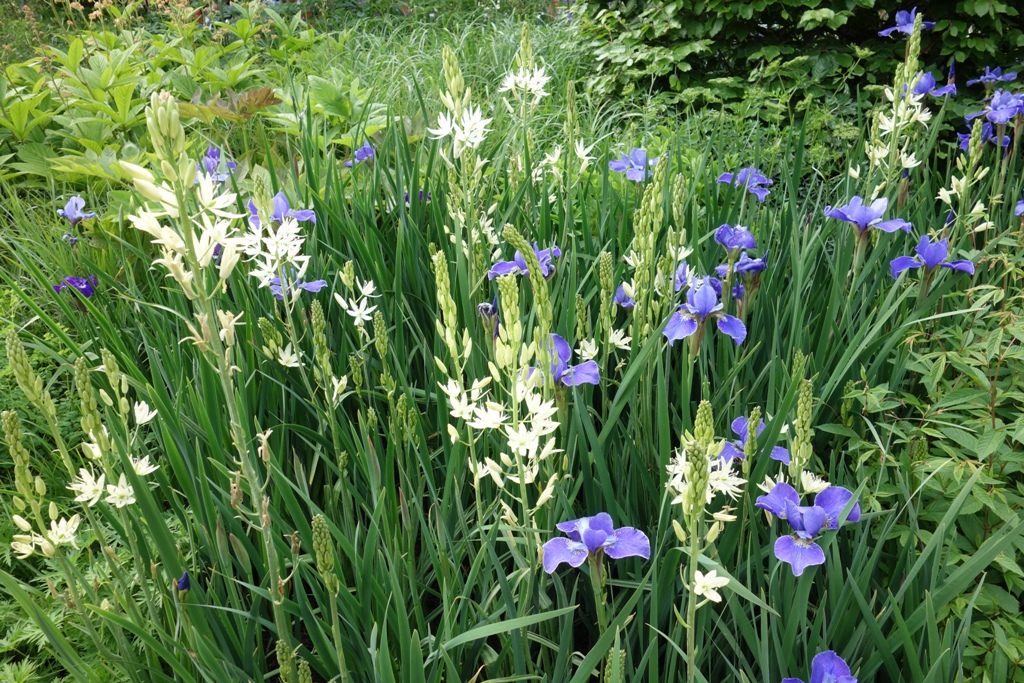
Standout Varieties
Plant and floral selections that appear at major flower shows often repeat themselves from one display to the next. Is it because the designers source from the same nurseries and growers? Or is it because the best choices are seasonally responsive to what’s in bloom at the time? Maybe it’s a little of both. I also suspect when an intriguing specimen first captures our heart, we begin to seek out (and discover) more beautiful examples.
Click here to see the RHS Plant of the Year winner and runners-up.
That was the case at Chelsea (for me, at least) with a few stellar choices, used artistically to full effect in the horticulture and garden displays:
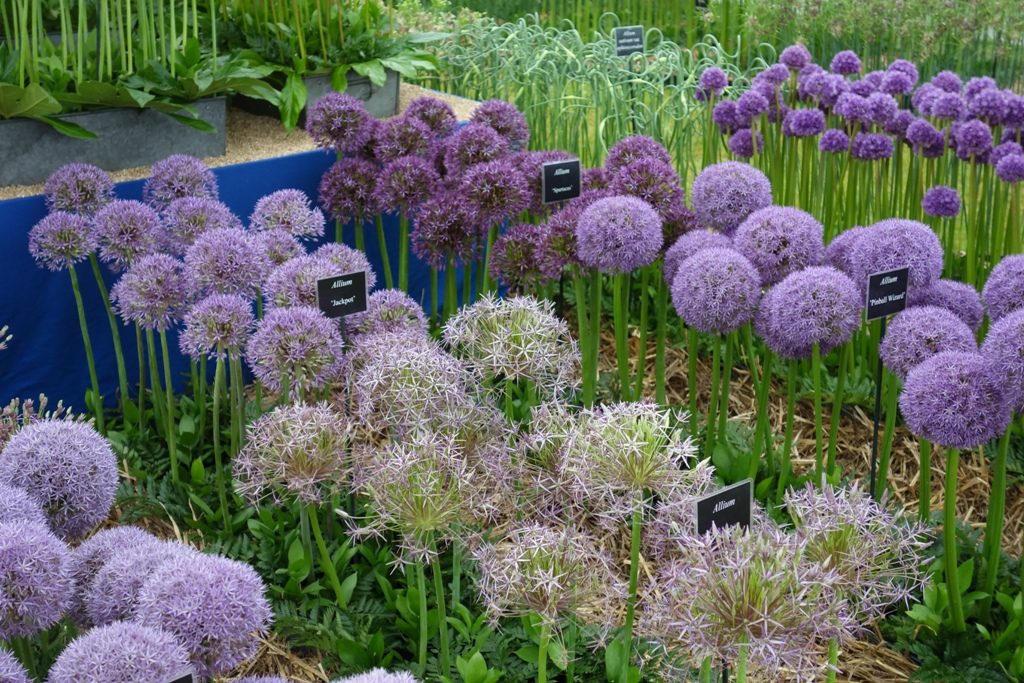
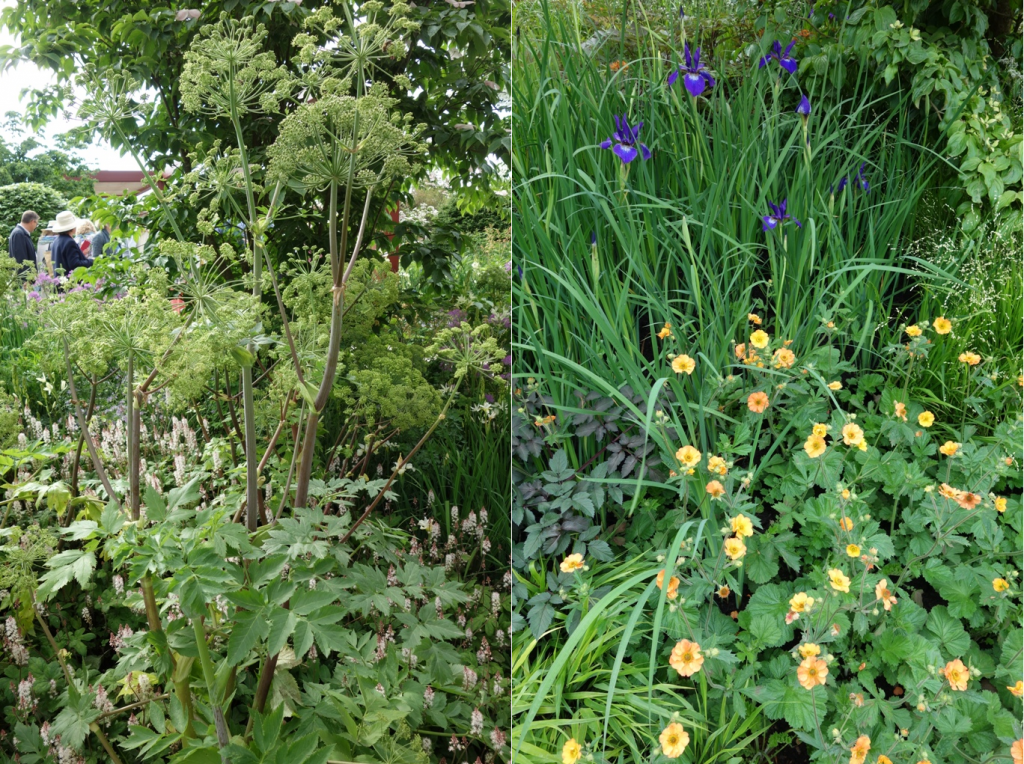
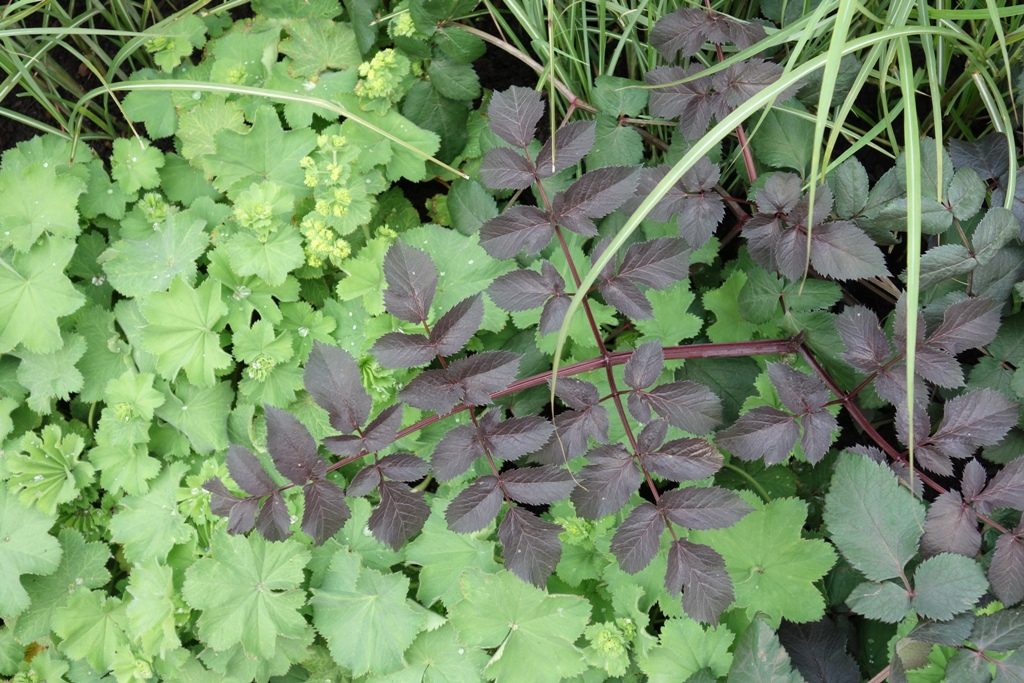
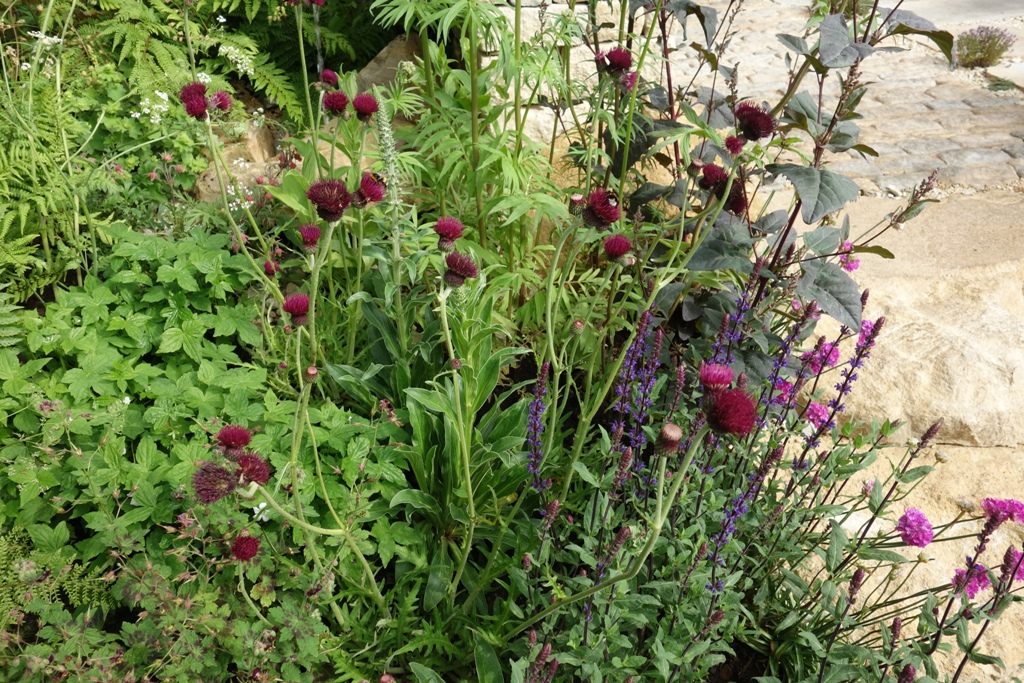
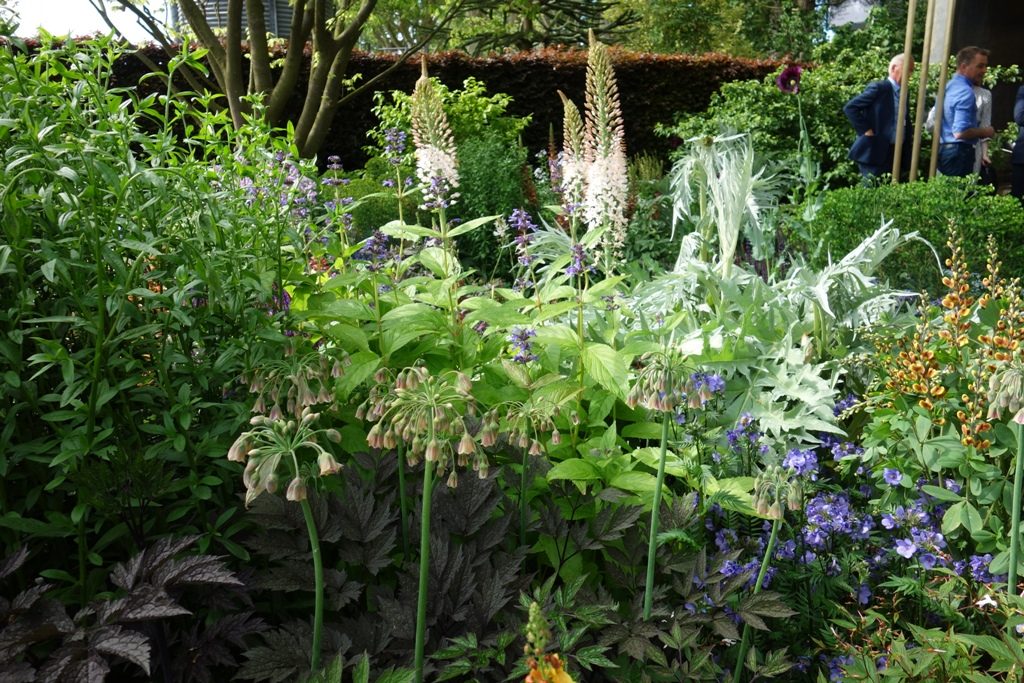
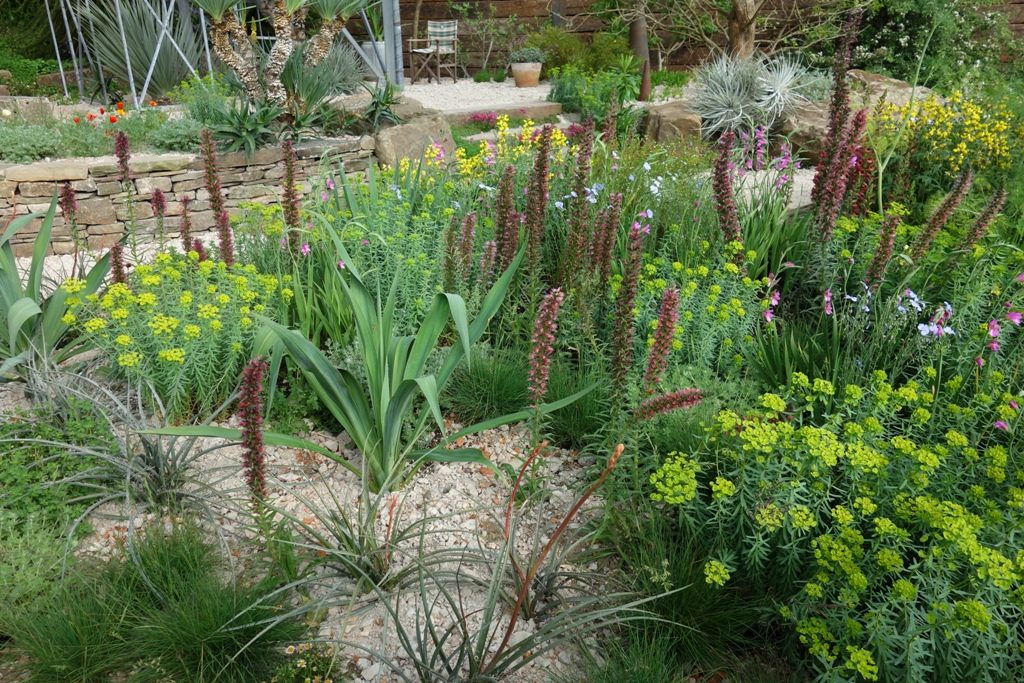
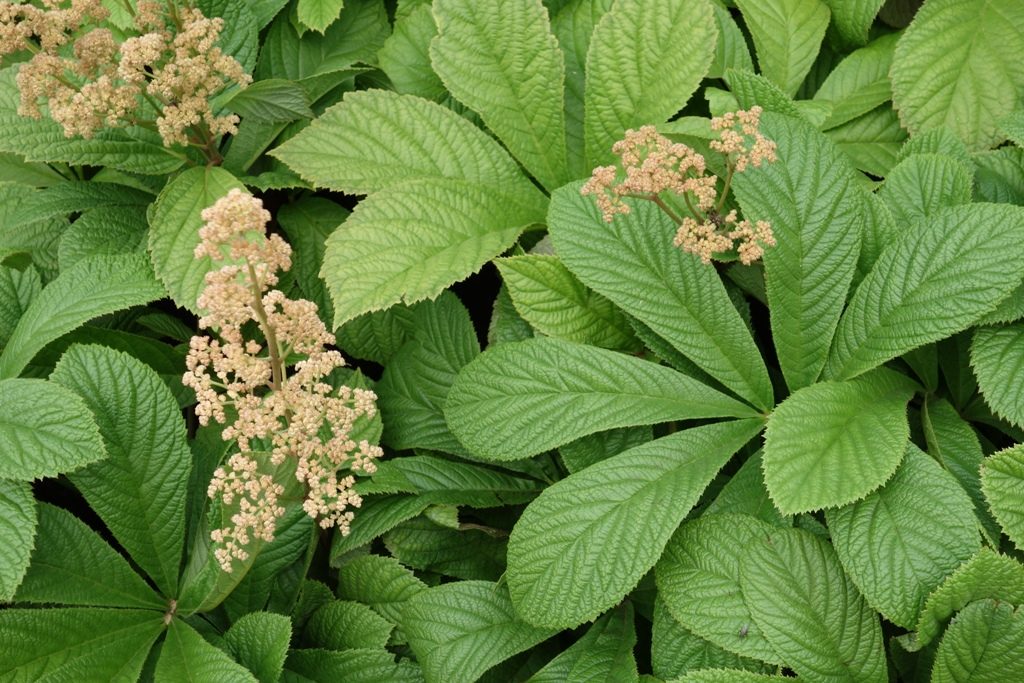
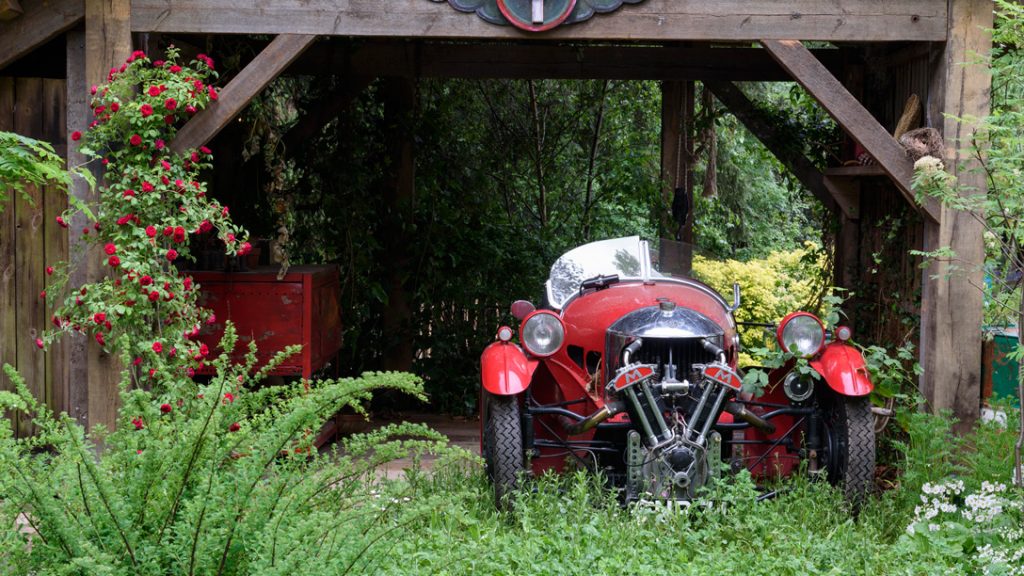
Aesthetic Themes
Formality took a back seat to a naturalistic, uncultivated aesthetic at the Chelsea Flower Show this year. Many of the display gardens tapped into a deep yearning for making a connection with the English countryside, wilderness, woodlands and meadows, seeking beauty in the natural world.
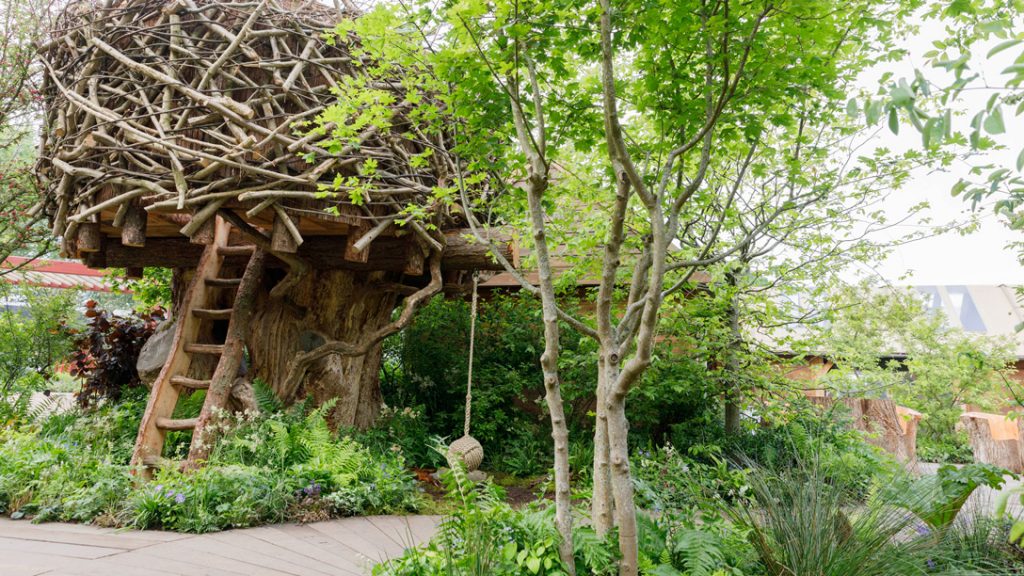
As the centerpiece and clearly the most popular expression of this theme, the RHS Back to Nature Garden, co-designed with HRH The Duchess of Cambridge and landscape architects Andree Davies and Adam White.
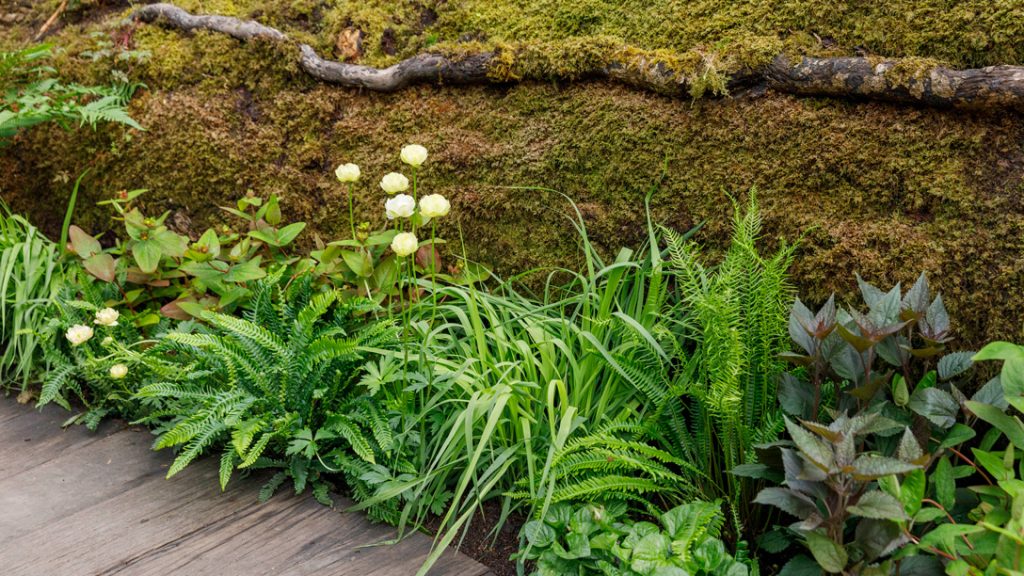
A celebration of the woodland garden inspired by childhood memories, the garden’s key elements included a beautifully-crafted hollow log for children to climb through, as well as a den, a tree house, a waterfall and a stream.
This narrative continued throughout many of the display gardens that emulated natural habitats, highlighting benefits of gardening to health and the environment, and respect for garden conservation.
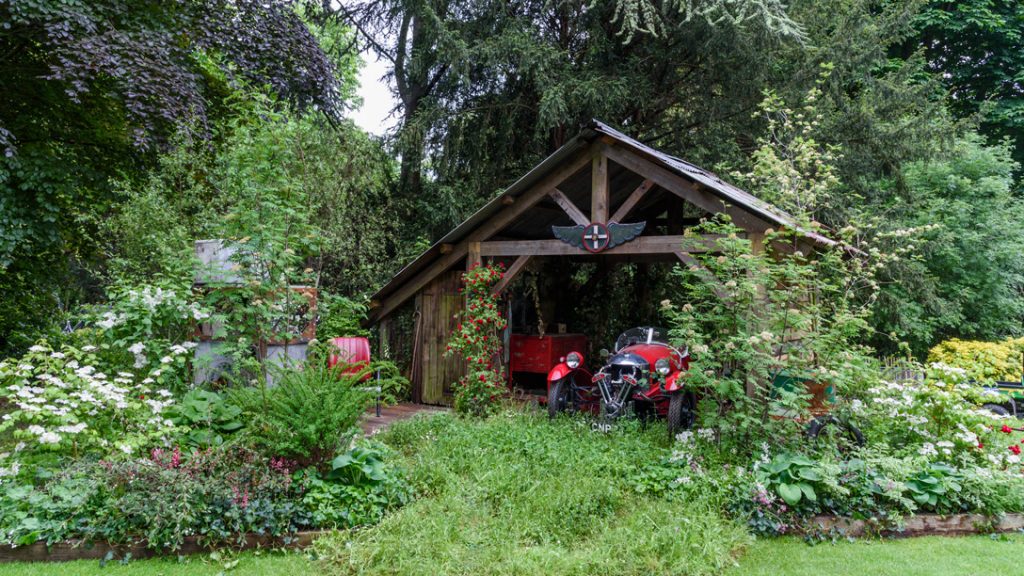
Sue Hayward’s High Maintenance Garden appeared in the Artisan Garden display, best illustrating a natural aesthetic. Her design depicted an untended garden gradually slipping back to nature while retaining a relaxed beauty and sensory atmosphere. From reclaimed, recycled and found materials to plantings that included native weeds and imperfect trees and shrubs, the design engaged my imagination and left me feeling thoroughly at peace.
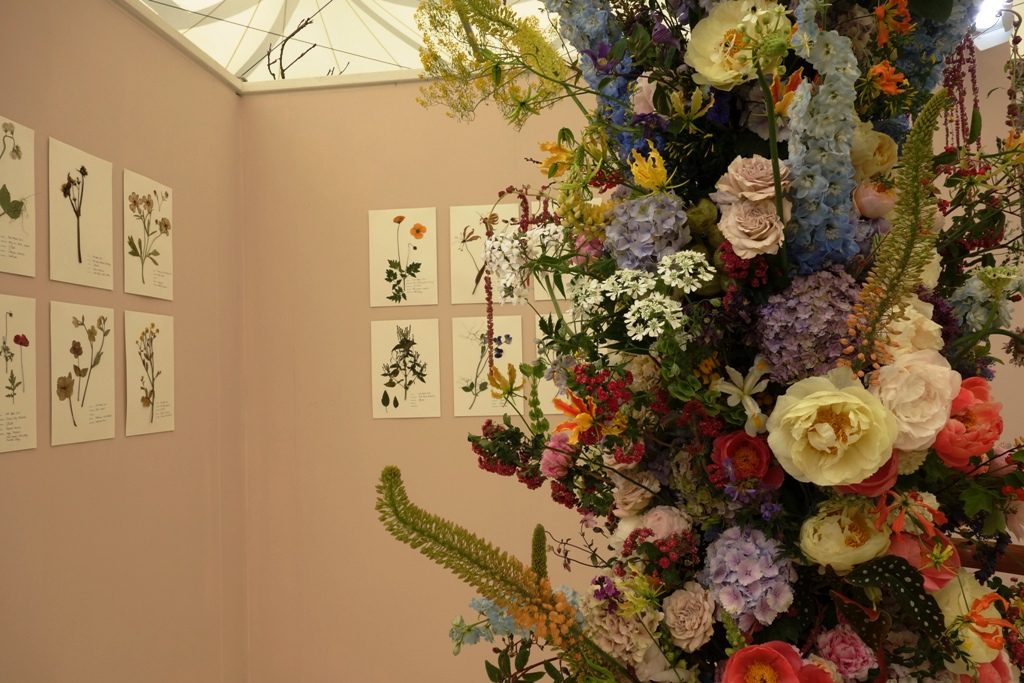
A new concept for the RHS Chelsea Flower Show presented the beguiling art of the florist with four entries called “Floral Immersion: the Beauty of Nature.” Each revealed a highly personal, three-dimensional narrative ranging from contemporary and spare to abundant dioramas.
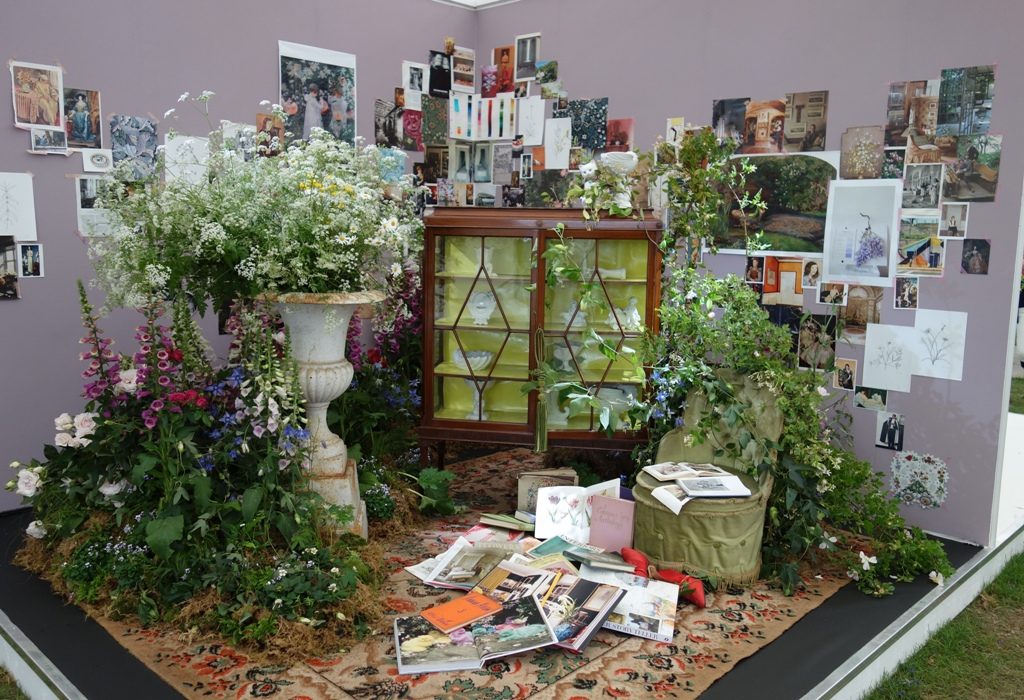
RAVISHED
Billy Hillhouse (billylovesflowers.com) imagined an abandoned room ravished by nature. Seasonal foraged foliage, blooms and plants create an abundant interior as natural fantasy, inspired by English flowers, fashion photographer Tim Walker, the Pre-Raphaelites and Kensal Green cemetery. English wildflowers are displayed in a natural way rather than being overly arranged, allowing them to do their own thing.
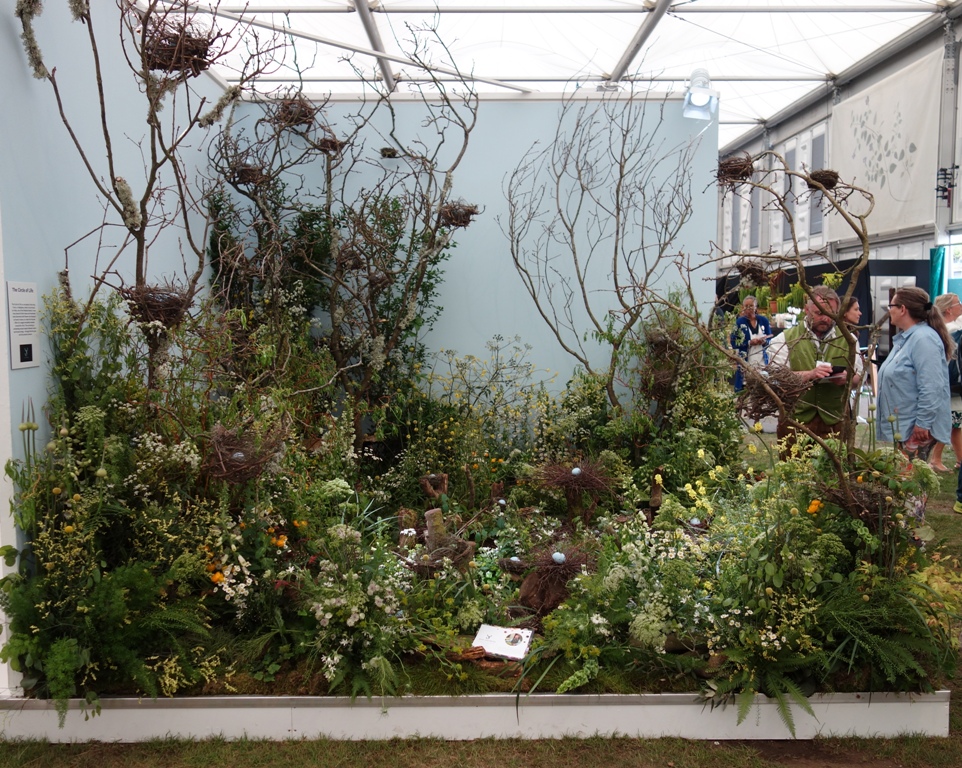
THE CIRCLE OF LIFE
Jens Jakobsen (jensjakobsen.co.uk) presented life in the ‘circle of the fairies’ as found on the Shetland Islands, reminding the viewer that nature is fragile but also full of beauty, energy and healing. The designer’s imaginary world suggested a day to lie on the ground, listen to nature and all its sounds, play with a textured leaf in one’s hands, hold one’s ears to a tree to hear its heart beat, and let one’s senses absorb the colors, structures, lines and scents.
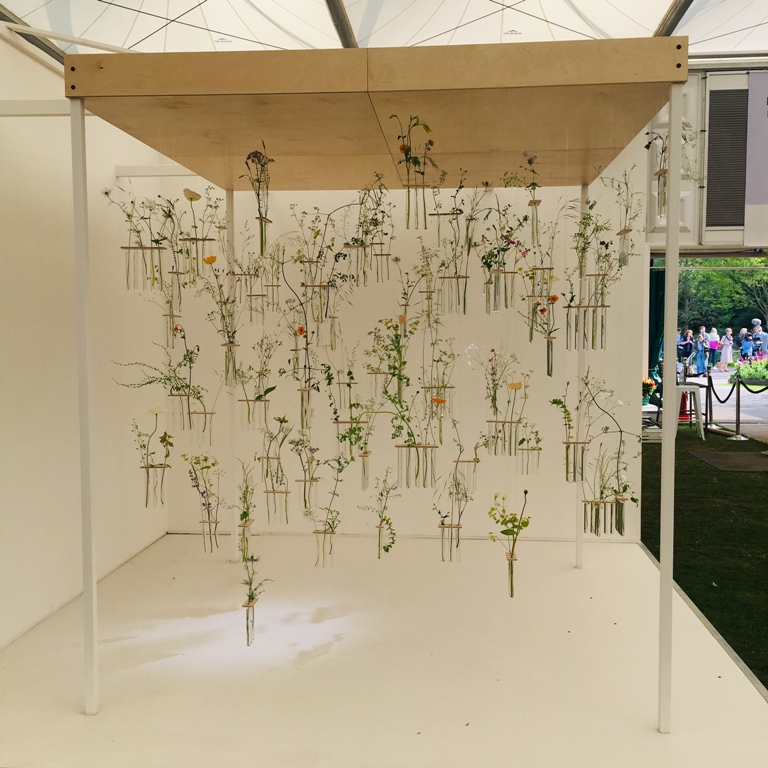
COME WHAT MAY
Charlotte Smithson (festoonflowers.co.uk) presented a fresh, botanical suspension of individual stems. She dressed glass test tubes hanging from the ceiling with textural and delicate displays of seasonal flowers, seed-heads, foliage and meadow grasses, carefully curated into clusters.
Inspired by tangles growing in hedgerows and wisps of leggy grasses in forgotten corners of fields and meadows, the stem-filled tubes hang ethereally to be observed and inspected. The installation captures the best of May’s wild, sustainably foraged and garden-grown British flora.
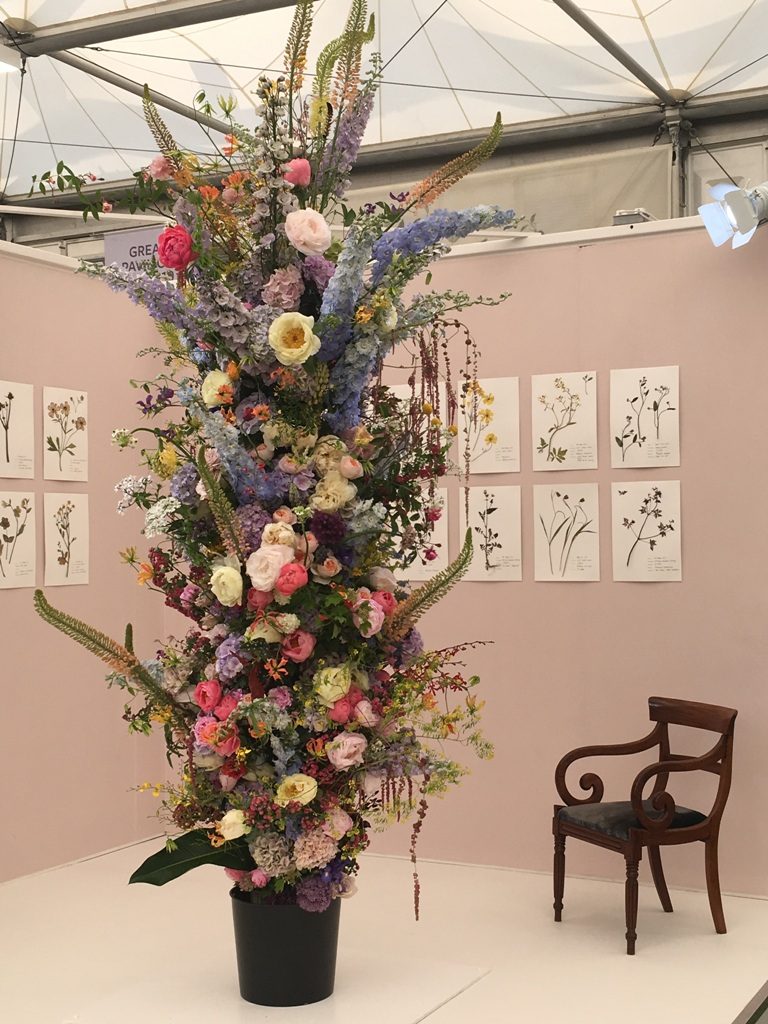
LIVING HERBARIUM
This installation by Gail Smith (gailsmith.co.uk) is in part an homage to her estranged grandfather, a keen amateur botanist in 1920s Cardiff, who specialized in alien species that grew from seeds swept off the foredeck of foreign merchant ships docked at Barry.
Water cones secured to a freestanding upright birch pole contains 500 stems of cut flowers and foliage to create a 10-foot-tall living herbarium.
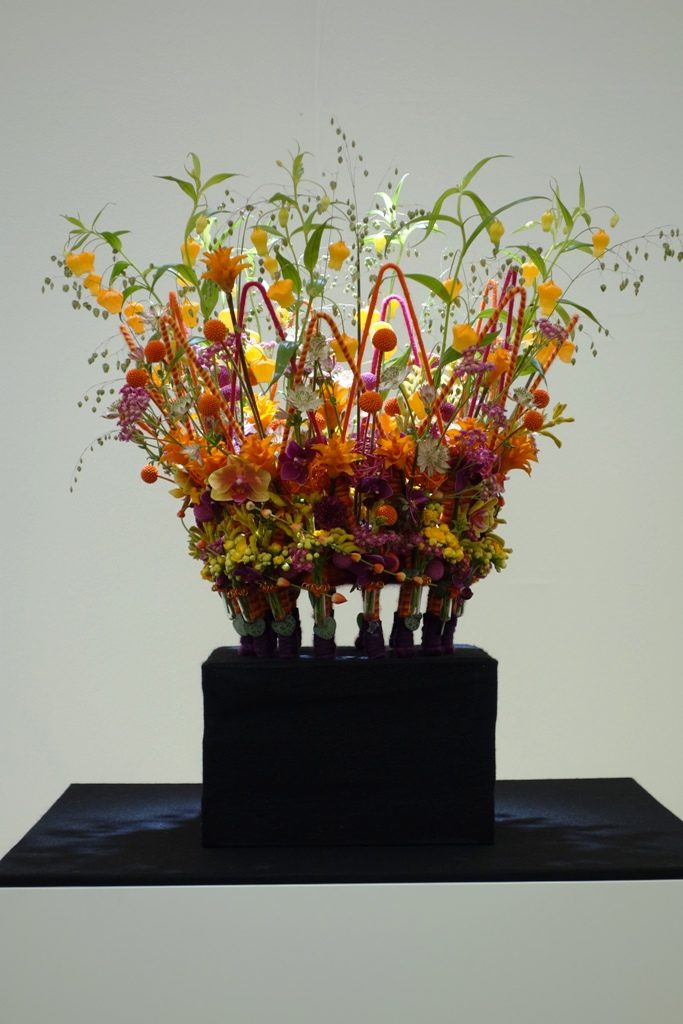
FLORISTRY COMPETITIONS
The RHS Chelsea Florist of the Year and RHS Young Florist of the Year offered florists a much-sought-after chance to display their work at the show. The theme for 2019 was Royal Floral Crowns, marking 200 years since the birth of Queen Victoria on May 24, 2019. The contest is partnered by the British Floral Association (BFA).
More photos from the British Florists Association.
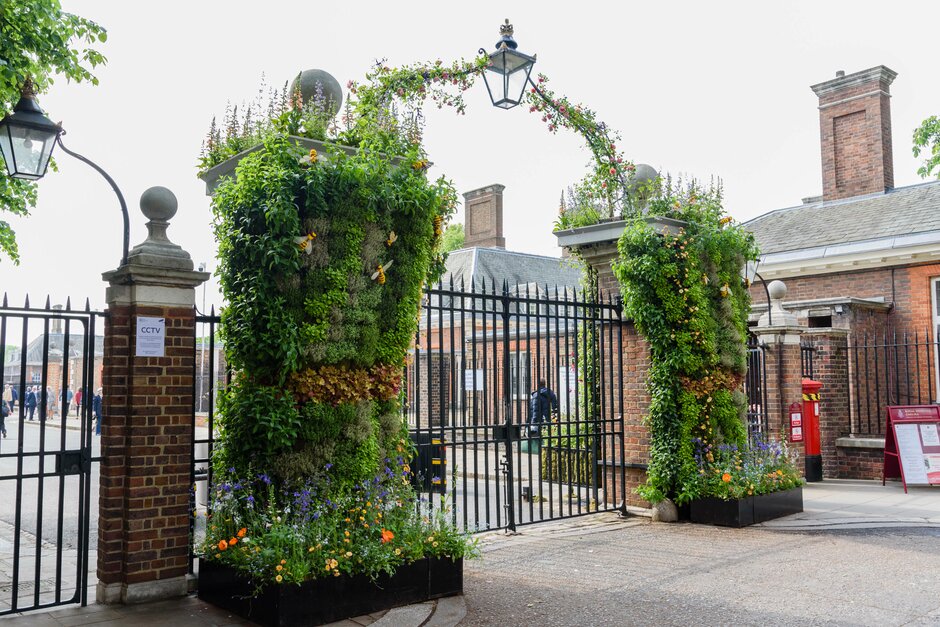
LONDON GATE
JamJar Flowers (jamjarflowers.co.uk) for Carole Bamford, Daylesford Organic decorated the main London Gate entry with “The Hum of Bees is the Voice of the Garden.” The studio transformed the gate into a proscenium arch, with ‘curtains’ of seasonal herbs and bee-friendly flowers hitched with a ‘tie back’ crafted from contrasting planting. Through this grand entrance the crowds stepped into the magical world of the RHS Chelsea Flower Show.
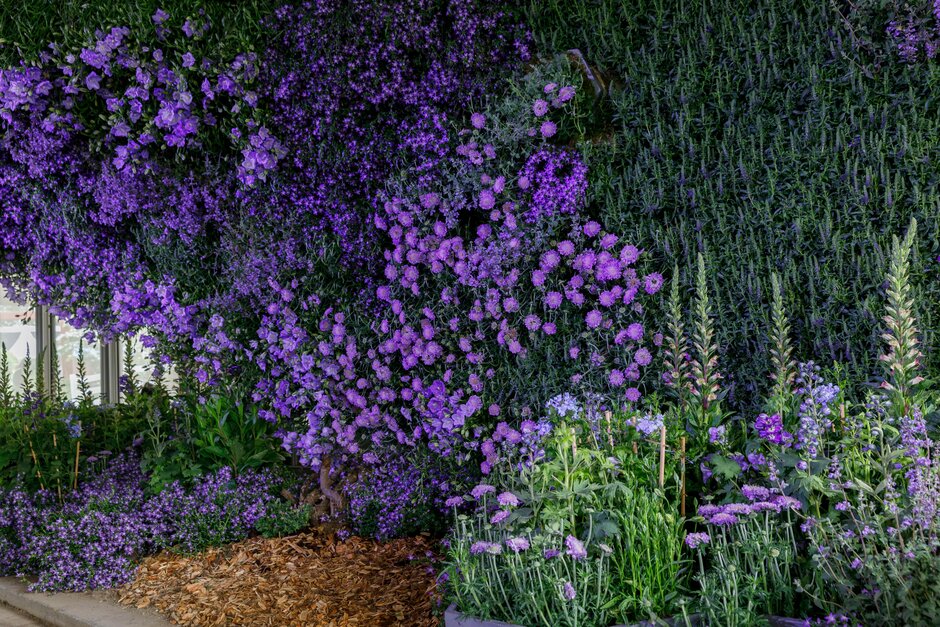
TUNNEL INSTALLATION
Per Oculus Apum (Through the Eyes of Bees), created by McQueens Flowers Ltd. (mcqueens.co.uk) is a dramatic and captivating sculpture constructed of British-grown, bee-friendly plants. The pedestrian tunnel installation encouraged show-goers to experience the world as bees view it through the use of UV light, scent trails and sounds demonstrating the natural iridescence of bee-friendly British plants.
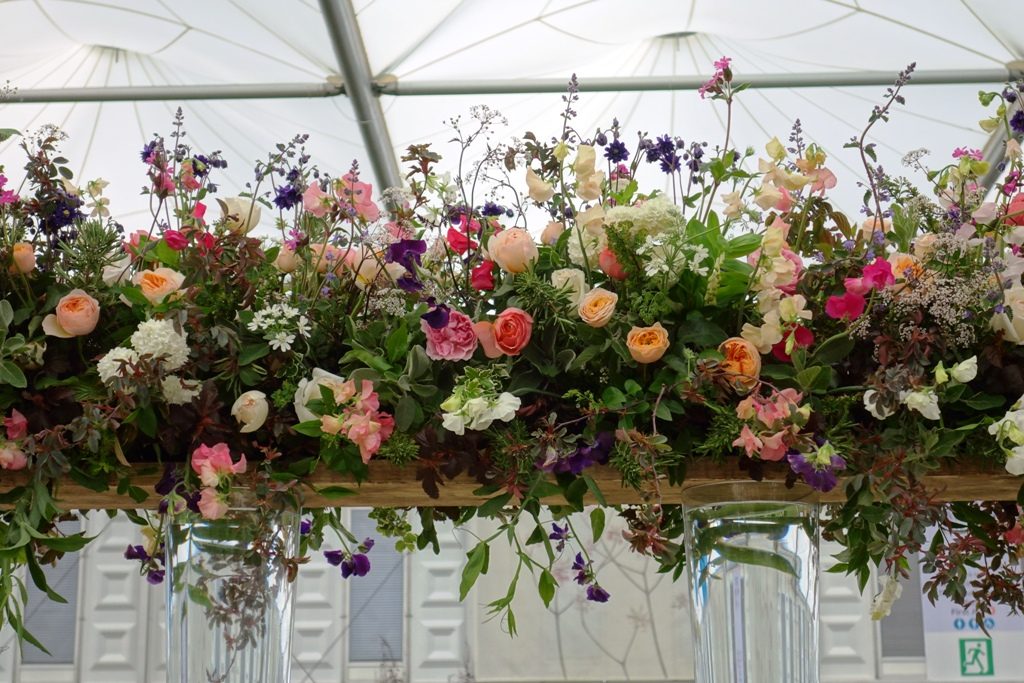
THE REAL FLOWER CO.
Marking its 20th anniversary, The Real Flower Co. (realflowers.co.uk) presented its first RHS Chelsea Flower Show exhibit. Founded by Rosebie Morton, the company’s mission is to make exquisitely scented garden roses and British seasonal flowers, herbs and foliage available to everyone. The display showcases the farm-to-vase journey of sustainably-grown flowers, including David Austin wedding and event roses.
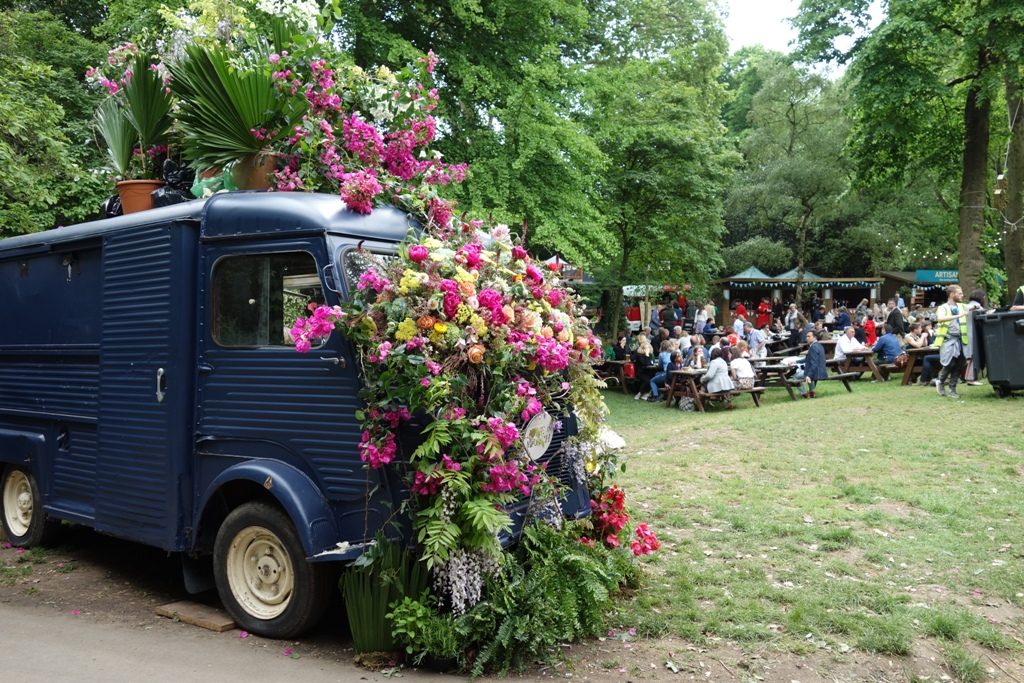
GERMAIN COCKTAIL TRUCK
Lavish whimsy for the French elderflower liqueur maker, St. Germain, designed by June in March (juneinmarch.com). The cocktail truck served a delicious menu of botanical drinks, inviting patrons to take floral-themed selfies.
